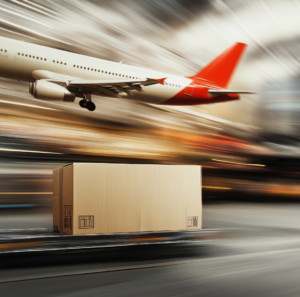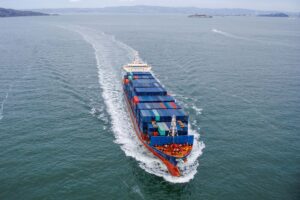Introduction
For companies trying to maximise their operations, global sourcing—the technique of obtaining goods and services from the international market across geographical boundaries—is a major tool. Advances in technology, globalisation, and changing economic paradigms have propelled this approach’s evolution over years. With its strategic location, trained workforce, and government regulations that support corporate development, Malaysia is ready to use global sourcing. The future of global sourcing and its possibilities to propel Malaysian business expansion are investigated in this paper.
The Development of Worldwide Sourcing
Globally sourcing was historically mostly about cost control. Companies looking to cut manufacturing costs sought cheaper labour and supplies elsewhere. But the paradigm has changed. Global sourcing today is more about obtaining specialised knowledge, creativity, quality, and speed than about anything else. Particularly in communication and transportation, technological developments have made global sourcing more practical and under control.
Malaysia's Global Sourcing Position
Strategically placed in Southeast Asia, Malaysia has quick access to important worldwide markets. Global sourcing finds the nation appealing because of its strong infrastructure, consistent political climate, and sensible economic policies. Malaysia’s dedication to education has also produced a trained workforce competent in several sectors, including electronics and manufacturing as well as information technology and services.

Government Policy Support
Several policies the Malaysian government has put in place help to facilitate global procurement. Programmes like the Economic Transformation Programme (ETP) seek to raise Malaysia’s level of income by supporting important industries including global sourcing, therefore transforming it to high-income status. Incentives for foreign investments and support of local businesses in increasing their worldwide presence are offered by the Malaysian Investment Development Authority (MIDA). Moreover, trade deals improve Malaysia’s competitiveness in the world by means of the Comprehensive and Progressive Agreement for Trans-Pacific Partnership (CPTPP).
Technologies Developments
Global sourcing’s future depends on technology in great part. With the integration of digital technologies such the Internet of Things (IoT), artificial intelligence (AI), and big data analytics, Industry 4.0 has changed established business paradigms. These technologies let Malaysian companies simplify processes, raise the quality of their products, and provide better consumer experiences. While IoT lets real-time production process monitoring, artificial intelligence can be utilised to examine market trends and maximise supply chain management.
Difficulties and Prospectus
Global sourcing brings difficulties even if it offers lots of possibilities. Among the hazards include geopolitical tensions, changing exchange rates, and supply chains interruptions. Strategic alliances and diversity help Malaysian companies to reduce these risks, nevertheless. Developing ties with several vendors across several areas helps to guarantee continuity and lower reliance on one source.
Moreover, using a flexible sourcing approach lets companies react fast to changing market conditions. For instance, several businesses suffered supply chains interruptions during the COVID-19 epidemic. Companies who have diversified their sources were more suited to negotiate the crisis.

Sustainability's Function
Globally sourcing calls for sustainability more and more of importance. Environmental and social concerns are increasingly known to consumers and stakeholders, who thus demand more responsibility from companies and more openness. By including sustainable practices into their procurement policies, Malaysian businesses can develop a competitive edge. This include choosing vendors who follow social and environmental norms, so lowering carbon footprints, and so supporting fair work practices.
Furthermore, complementing Malaysia’s national objective is sustainability. Launched by the government, the Green Technology Master Plan (GTMP) seeks to lower the environmental effect of economic activity and advance sustainable development. Through matching their procurement practices with national policies, Malaysian companies can improve their worldwide competitiveness and help to promote sustainable development.
Case Notes
Many Malaysian businesses have driven expansion by effectively using global sourcing. For instance, Intel Malaysia, the behemoth in electronics, sources components all around to guarantee the manufacturing of premium semiconductor products. Intel Malaysia has grown to be a major participant in the worldwide electronics industry by combining local manufacturing capability with global sourcing.
Another illustration is Top Glove, the biggest glove producer worldwide. Raw materials for Top Glove come from many nations to guarantee a consistent supply and keep reasonable prices. Even during the COVID-19 epidemic when demand for medical gloves increased, the company’s strategic sourcing method has helped it to effectively supply worldwide demand.
Future Developments
Looking ahead, a number of developments will help to define global sourcing in Malaysia. The growing acceptance of digital technologies will keep changing sourcing policies, thereby improving their responsiveness and efficiency. Furthermore, the emphasis on sustainability will force companies to change their ways of operation and choose suppliers who share environmental values.
Global sourcing will also be affected by the growth of regional trade agreements as the Regional Comprehensive Economic Partnership (RCEP). By lowering tariffs and harmonising standards, these accords help commerce by enabling Malaysian companies to more easily acquire goods and services from other members of the union.
Conclusion
For Malaysian companies, global sourcing presents great chances to improve their competitiveness and stimulate development. Using Malaysia’s strategic advantages, technical developments, and government backing can help companies negotiate obstacles and seize the possibilities afforded by worldwide procurement. Malaysia is positioned to become a centre for global sourcing as the global corporate scene changes, therefore supporting the economic growth and prosperity of the country.




